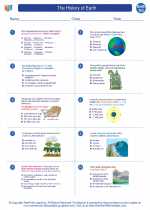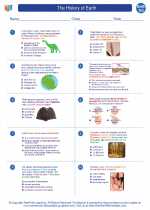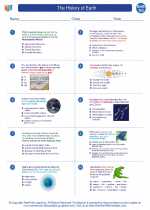Aquifers: Explanation and Study Guide
Explanation
An aquifer is a natural underground reservoir of water that can be extracted for human use. It is typically made up of layers of permeable rock or sediments, such as sand, gravel, or porous rock, that can hold and transmit water. Aquifers are a crucial source of fresh water for drinking, irrigation, and industrial purposes.
There are two main types of aquifers: confined (or artesian) aquifers and unconfined (or water-table) aquifers. Confined aquifers are trapped between impermeable layers of rock, while unconfined aquifers are closer to the surface and have a water table that fluctuates with rainfall and other factors.
Human activities such as excessive pumping, pollution, and urban development can deplete or contaminate aquifers, leading to serious water shortages and environmental problems.
Study Guide
- Definition: What is an aquifer? Explain the characteristics of an aquifer and its role in providing fresh water.
- Types: Differentiate between confined and unconfined aquifers. Describe the geological features that define each type.
- Importance: Discuss the significance of aquifers in sustaining human life and the environment. Provide examples of how aquifers are utilized in various sectors such as agriculture, industry, and domestic use.
- Threats: Identify and explain the potential threats to aquifers, including over-extraction, pollution, and urbanization. Discuss the consequences of these threats on water availability and quality.
- Conservation: Outline strategies for the conservation and sustainable management of aquifers. Discuss the role of government policies, technological advancements, and community involvement in protecting this vital resource.
By understanding the principles and significance of aquifers, we can work towards preserving these valuable sources of fresh water for future generations.
.◂Earth Science Worksheets and Study Guides High School. The History of Earth

 Worksheet/Answer key
Worksheet/Answer key
 Worksheet/Answer key
Worksheet/Answer key
